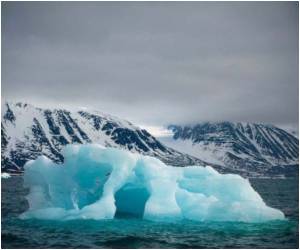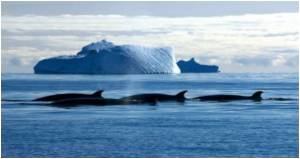
"One of our major findings is that the Arctic was very warm in the middle Pliocene and Early Pleistocene-roughly 3.6 to 2.2 million years ago-when others have suggested atmospheric carbon dioxide was not much higher than levels we see today," Julie Brigham-Grette, of the University of Massachusetts Amherst said.
She added that "this could tell us where we are going in the near future. In other words, the Earth system response to small changes in carbon dioxide is bigger than suggested by earlier climate models."
The data come from the analysis of a continuous cylinder of sediments collected by NSF-funded researchers from the bottom of ice-covered Lake El'gygytgyn, pronounced El-Guh-Git-Kin, the oldest deep lake in the northeast Russian Arctic, located 100 kilometers (62 miles) north of the Arctic Circle. The drilling was an international project.
Results of the core analysis, according to Brigham-Grette, have "major implications for understanding how the Arctic transitioned from a forested landscape without ice sheets to the ice- and snow-covered land we know today."
The study is published in the journal Science.
Advertisement








